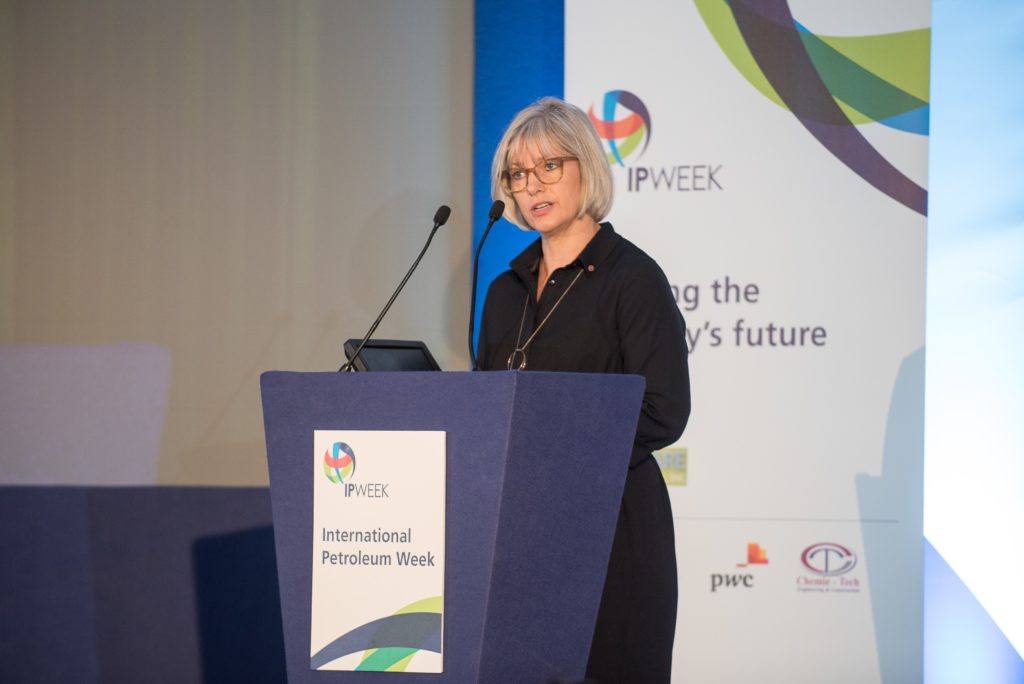
As the Energy Institute (EI) becomes a supporting organisation to the Methane Guiding Principles, Chief Executive Louise Kingham OBE FEI explains why she wants to see CH4 discussed alongside CO2 at next week’s IP Week conference.
Two trends are rushing headlong in opposite directions.
Greenhouse gas emissions continue to rise. Despite the promise of Paris, global emissions are believed to have reached a new high last year and the IPCC’s conclusion is that we’re hurtling toward a devastating 3C temperature rise by the end of the century – double the 1.5C aspiration needed to protect low-lying Pacific islands, avoid the worst human health impacts and retain our planet’s fragile coral reefs.
At the same time growth in demand for fossil fuels remains strong. The IEA reports that the proportion of the world’s energy sourced from fossil fuels is still around 80% – the same as it was more than three decades ago – and that’s 80% of 2.5 times the amount of energy! Even with impressive progress on energy efficiency and renewables, and signs of a slowing in demand growth for coal and oil over the coming years, demand for natural gas from developing economies in Asia and elsewhere is expected to maintain an upward trajectory.
Squaring this circle will be one of the central themes at IP Week 2019, hosted by the EI next week and attended by some of the energy industry’s most senior figures including Bob Dudley of BP plc, Chad Holliday of Royal Dutch Shell plc and Amin Nasser of Saudi Aramco.
Alongside geopolitics and technology, sustainability is one of our themes and we’re sure to hear plenty of insight into the oil majors’ low carbon pathways and enthusiasm for reducing carbon emissions during combustion, in particular through carbon capture, usage and storage. All of this is crucial.
But the release of so-called fugitive methane during oil and gas production tends to get too little airtime, despite it being 28–36 times more potent as a greenhouse gas than CO2 over 100 years. The problem is occurring in the middle of producers’ own operations and is particularly acute during shale gas extraction, which in the US alone has grown by a factor of 14 since 2007.
So what are the prospects of action on CH4?
Research by the International Energy Agency suggests it’s technically possible to avoid 75% of current methane emissions in the natural gas supply chain, of which as much as half could be avoided at net negative cost because of the value of the methane saved.
Despite this, awareness within the industry is woefully low. More than 80% of international oil and gas professionals surveyed by the EI last year were unaware of the extent of the possibilities to tackle the problem.
As in so many aspects of tackling climate change, there’s perhaps a prisoners’ dilemma to overcome. In the absence of international regulation with teeth, companies need to have confidence that they won’t be disadvantaged by bearing perceived additional cost if their competitors are able to ignore it.
So we need to ramp up collective action.
The Methane Guiding Principles are the bedrock of that. The commitment from 18 global operators to reduce methane emissions and improve accuracy and transparency around methane emission data is crucial. The EI is today becoming a supporting organisation, with a commitment to raising awareness among our members, partners and customers, for the public good.
More tangibly, we saw a pledge from the Oil and Gas Climate Initiative during September’s Climate Week in New York, that its 13 members will reduce the collective average methane intensity of their aggregated upstream operations by a fifth by 2025, with a further ambition to achieve a one third reduction.
We’ll hear from head of OGCI Climate Investments Pratima Rangarajan at IP Week and I hope to see methane leakage taken seriously right across the conference – at the lectern, on the panels and from the floor.
As an industry, we have to meet this challenge head-on, not head-in-sand. Methane must not continue to play second fiddle to carbon. If we don’t up the ante on CH4, there’s a risk efforts to reduce CO2 emissions elsewhere in the lifecycle could be undermined, and with them natural gas’s licence to operate as a cleaner fossil fuel and bridge to a sustainable energy future.
International Petroleum (IP) Week runs from 26-28 February in London. More information can be found at www.ipweek.co.uk.
Recommended for you
